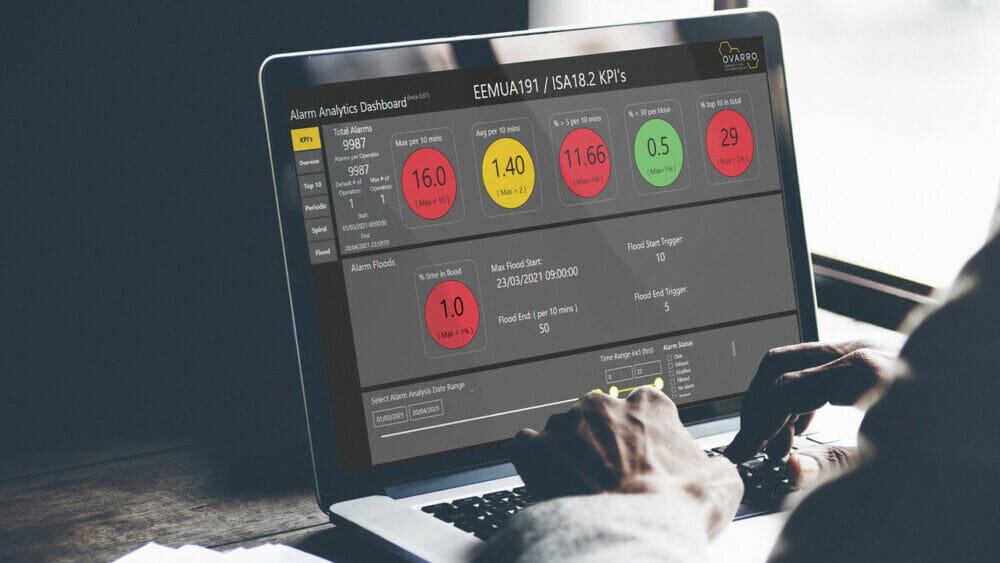Network operators should turn to Software-as-a-service (SaaS) analytics to make better use of data
A lot of businesses talk about being data rich, information poor. They are collecting vast amounts of data out in the field from various network devices like remote terminal units, but don’t have the right tools to make the best use of this data. Here, Alan Cunningham, subject matter expert at remote monitoring specialist Ovarro, explains why Software-as-a-service (SaaS) analytics are necessary to help network operators see the wood from the trees.
Network operators in several industrial sectors, such as oil and gas, broadcast, transportation, power and process, are all under pressure to make their operations more efficient. But, in many cases, ageing IT systems are halting their progress.
Budget constraints mean that replacing these legacy systems isn’t an option for many businesses. These companies might also be reluctant to invest in new technologies that could improve their data acquisition if the solution requires capital expenditure (CapEx).
If businesses could make better use of the data already being collected with better remote monitoring, they could manage their operations far more efficiently and avoid the expenditure of replacing legacy assets — but how Fortunately, an answer to this can be found in the cloud.
Advancements in cloud-based analytics tools are providing cost-effective operational enhancements in areas like alarm system management. With these tools, businesses can take information that already exists and identify historical patterns, so it becomes more powerful.
Savings through software
Software-as-a-service (SaaS) is the way forward for businesses. That’s why technology provider Ovarro is working in partnership with several companies, across a range of sectors, to develop software tools that give clearer insights into what is happening in their processes and internal networks. With these new tools, data that has already been captured can be streamlined and managed effectively.
One example is AlarmVision, a cloud-based SaaS application. As its name suggests, AlarmVision analyses the stream of alarms coming into a company’s control room from its remote telemetry systems, and presents this information in the form of a real-time dashboard. Because this SaaS application is cloud-based it can be accessed through any device with an internet connection, as opposed to a software product that is entirely installed on a device or network.
Looking ahead, Ovarro plans to also design its other next-generation analytics tools as SaaS. As seen with AlarmVision, these programmes could help reduce customer costs in configuration, maintenance, support and upgrades.
Maintain or gain control
The AlarmVision dashboards give human operators a measure of control over alarms. They can identify the root cause of the largest proportion of alarms being generated on their system. For instance, a faulty piece of equipment might cause 10 per cent of total alarms on a given day.
Identifying the root causes gives insight to action and prioritise resources — what’s more, AlarmVision can do this based on internationally-recognised key performance indicators. The ability to gain real-time, or backwards-looking, analysis of how the control technology is operating against the standards provides an insight into whether there is a risk of critical alarms being missed.
Reducing noise
There’s another issue, however. What if a control room is swamped by nuisance alarms? Missing one could be catastrophic for customers, the environment and the network operator itself. In the worst-case scenario, this could also lead to penalties or even prosecutions, which must be avoided.
With insights from the AlarmVision platform, operators are likely to miss important alerts because they can reduce the noise, or nuisance alarms. With less noise, it is possible to see what’s real versions what is a nuisance.
Further to this, Ovarro’s end goal is to completely remove alarms from the equation. Additional functionalities are currently being developed for AlarmVision to enable companies to be fully-predictive.
Ovarro hopes its customers in the oil and gas, broadcast, transportation, power and process sectors can predict an alarm before it becomes an alarm ― and, in doing so, move from a reactive model to a proactive model. With these developments network operators could be not just data rich, but information rich too.





